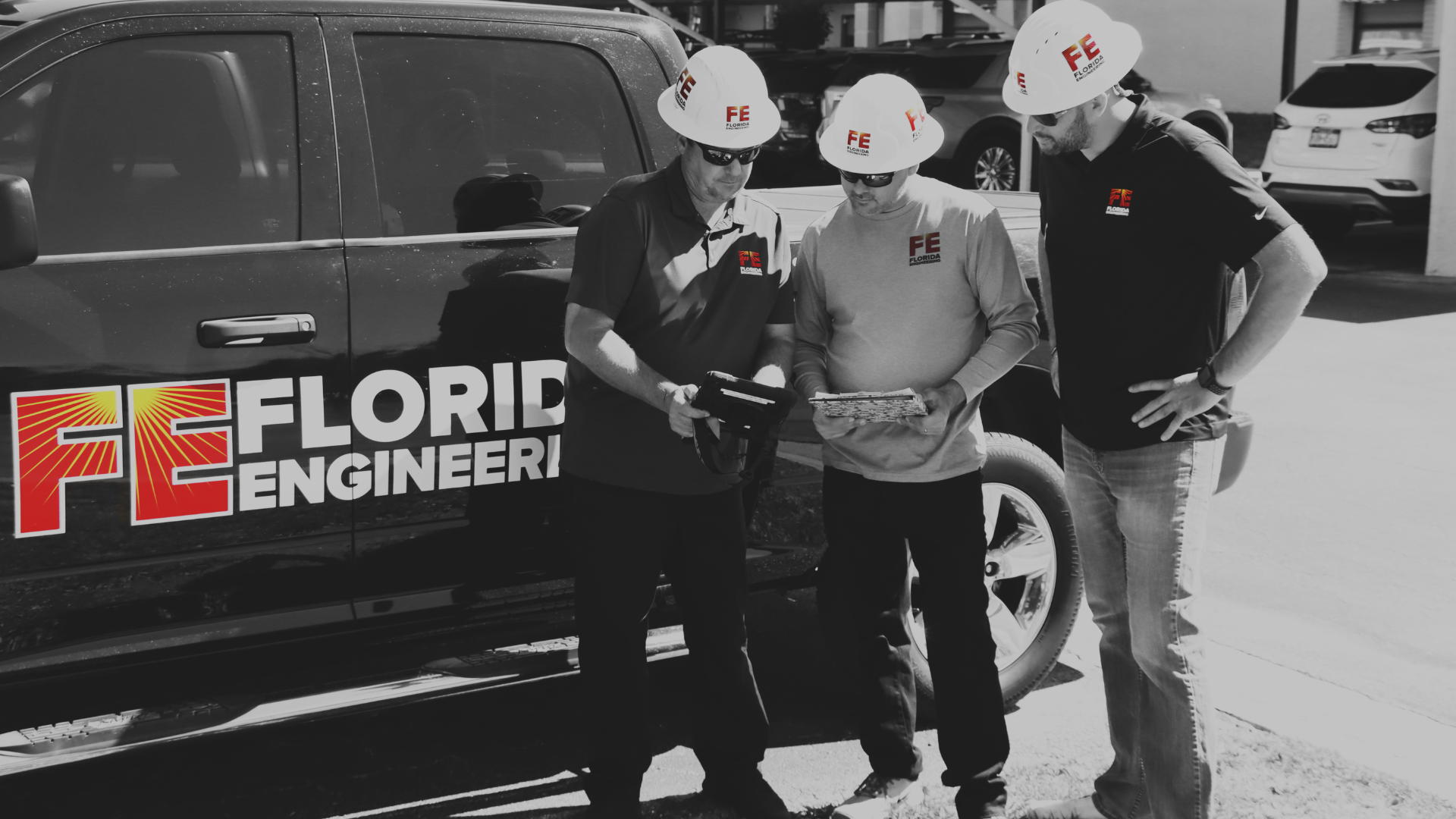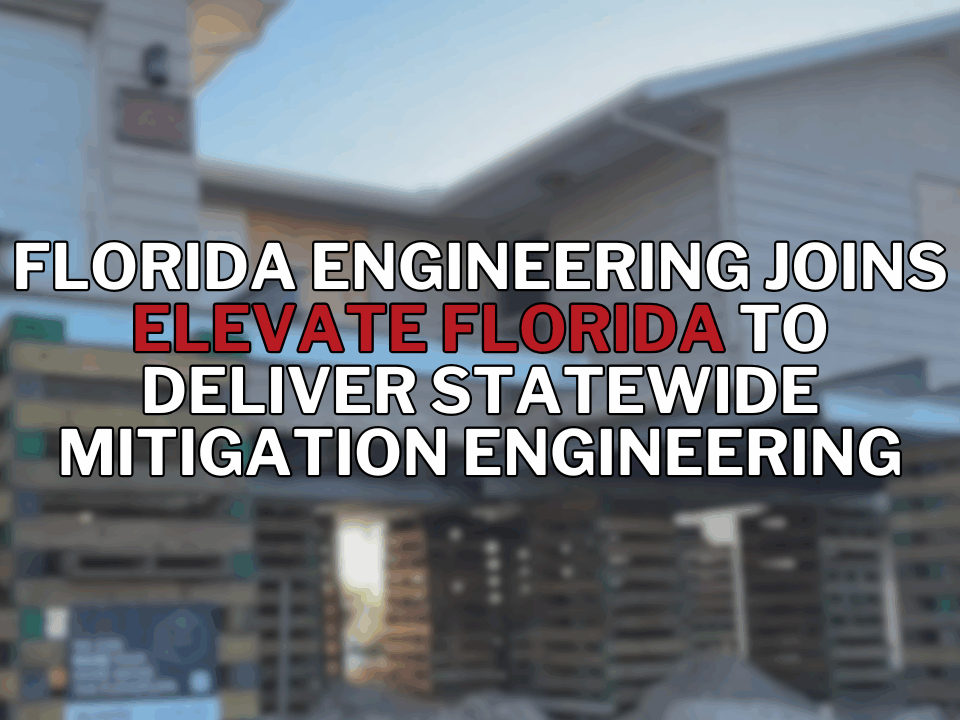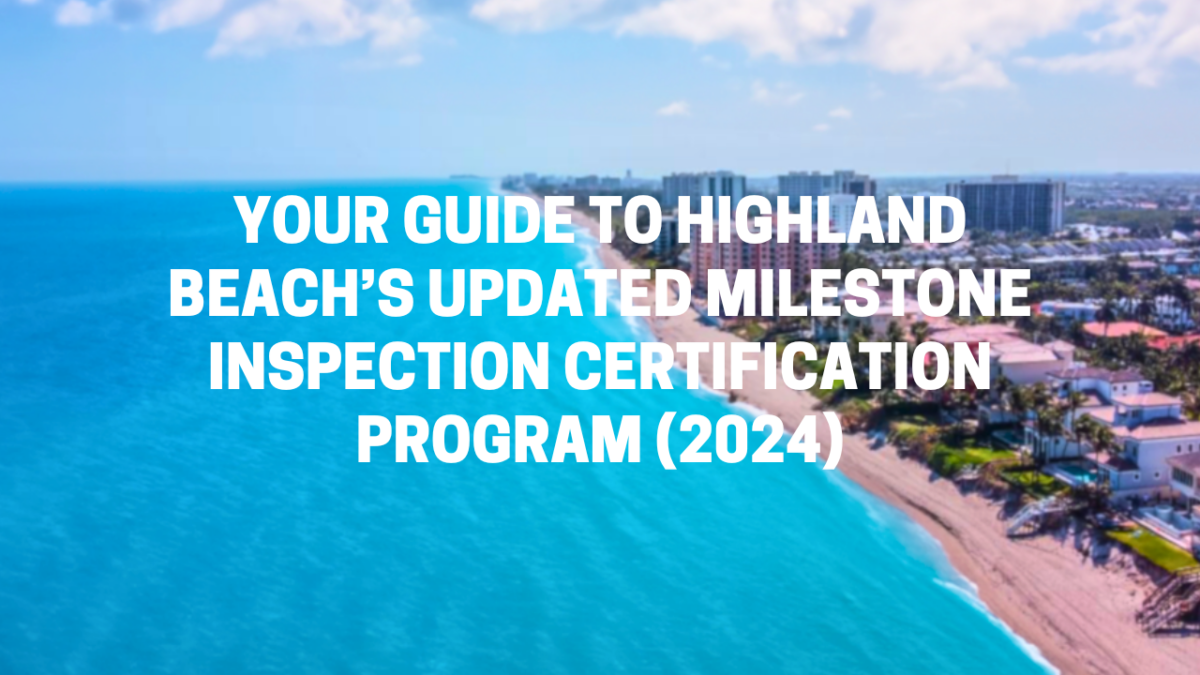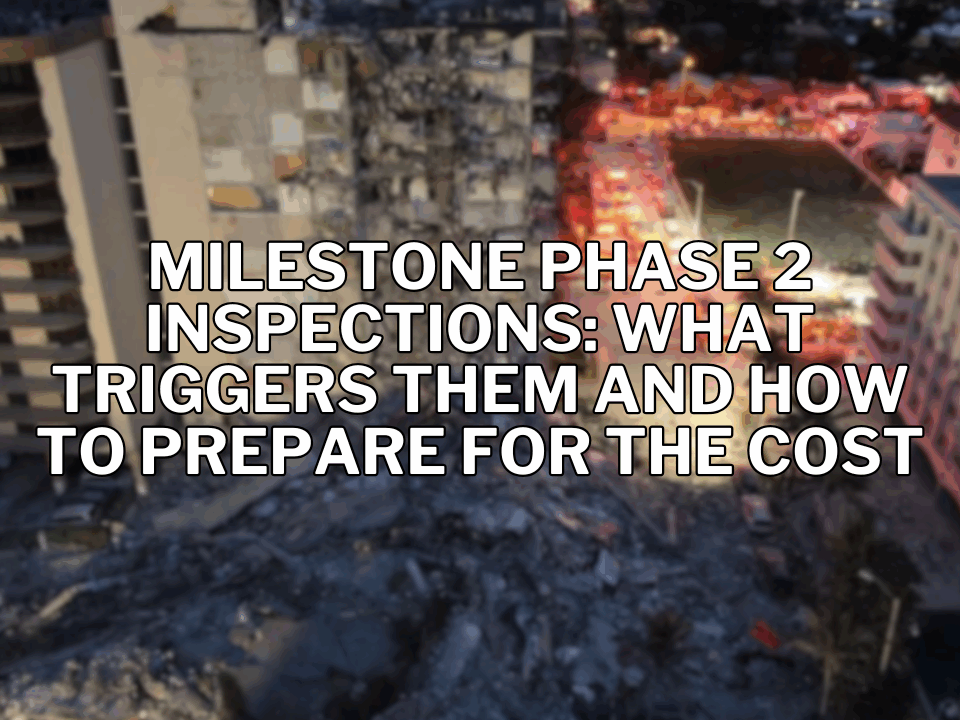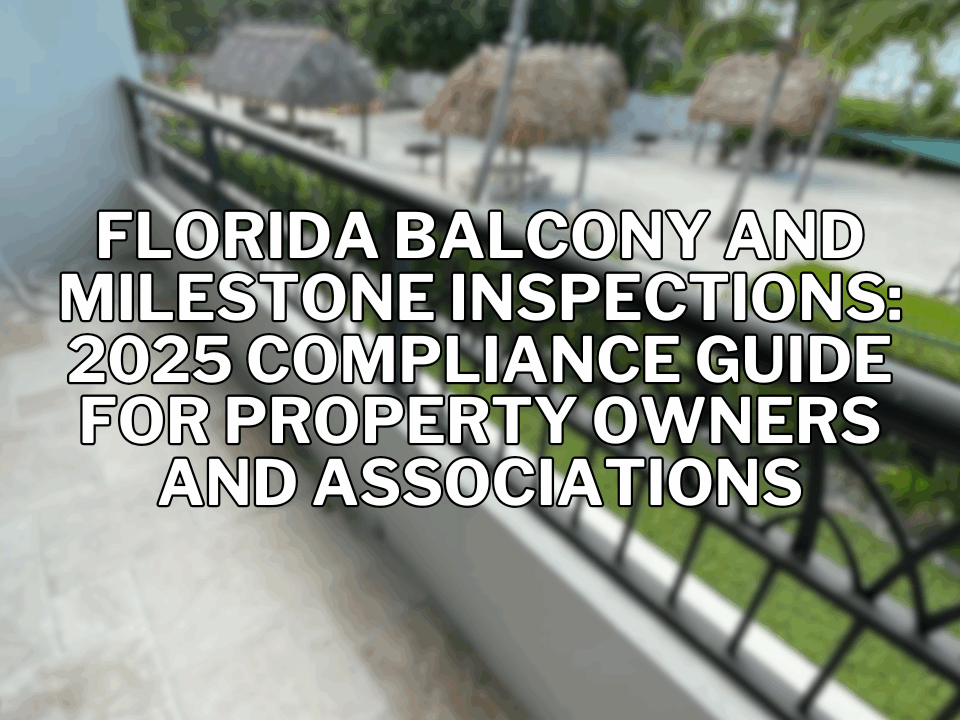Ensuring the safety and longevity of your building is a top priority, especially with the recent updates to Highland Beach’s building recertification and inspection program. If you own or manage a building in this area, it’s essential to understand how these changes could impact you. The Building Recertification Ordinance (2022-008) and the 2023 Milestone Inspection Summary introduced new procedures, and failing to comply with these updates could result in significant penalties. This guide will provide you with the information you need to navigate Highland Beach’s updated recertification process with ease.
Table of Contents
- Understanding the Framework
- Building Recertification Overview
- Age-Based Recertification
- Advance Notification
- In-Depth Look at Phase One and Phase Two Inspections
- Phase One Milestone Inspection
- Phase Two Milestone Inspection
- 2023 – 2024 Recertification Program Updates
- Special Inspector Registration
- Enhanced Reporting Requirements
- Conclusion and Next Steps
Understanding the Framework
Threshold Building
A “Threshold Building” is defined as a structure over three stories or 50 feet tall, or one with large assembly areas. These buildings require specific inspections according to updated ordinances, ensuring thorough assessments of structural and electrical integrity.
Association Building
Buildings owned by a condominium or cooperative association with three or more stories and at least four dwelling units are also subject to the recertification requirements under the Florida Statutes 553.899, ensuring compliance and safety for all types of residential structures.
Building Age
The key factor in recertification is how long it’s been since your building’s original certificate of occupancy was issued. This determines the timeline for mandatory inspections and recertifications.
Building Recertification Overview
Age-Based Recertification
- For Buildings Aged 25 Years:
Buildings that are 25 years or older are required to undergo a recertification every 10 years. This schedule helps ensure that potential structural or electrical issues are identified early enough to prevent costly or dangerous problems. - For Buildings Aged 40 Years and Older:
Buildings that are 40 years or older must undergo recertification every 7 years. These older structures face greater risks of material degradation and structural wear, making more frequent inspections necessary to uphold safety standards.
Advance Notification: Facilitating Adequate Preparation
180-Day Advance Notice: The Building Official will provide building owners with a notice at least 180 days before the Phase One inspection is due. This advanced notification ensures that property owners have adequate time to prepare for the inspection process, including conducting any necessary preliminary checks or repairs.
In-Depth Look at Phase One and Phase Two Inspections
Phase One Milestone Inspection: The Initial Assessment
- Visual and Structural Inspection:
A licensed Florida architect or engineer conducts the Phase One inspection. This visual examination focuses on key structural components such as foundations, columns, walls, roof systems, and windows. Inspectors look for signs of material deterioration or movement between structural elements that could compromise the building’s safety. - Electrical Safety Evaluation:
Conducted by a licensed electrical engineer, this part of the inspection assesses the building’s electrical systems, including the condition of service disconnects, feeders, branch circuits, and emergency lighting systems. The report must either certify the electrical safety of the building or identify any deficiencies that require attention.
Phase Two Milestone Inspection: The Detailed Examination
If the Phase One inspection identifies substantial structural deterioration, a Phase Two inspection is required. This phase involves more advanced testing techniques, such as:
- Non-Destructive and Destructive Testing:
These methods, including ultrasound and core sampling, provide a more thorough evaluation of the structural integrity of the building. - Repair Recommendations and Action Plan:
The Phase Two report details the extent of any identified structural issues and includes specific repair recommendations along with the required timeframe for completing the repairs. All repairs must be completed within 365 days of the report’s acceptance by the Building Official, though extensions can be granted if needed.
2023 – 2024 Recertification Program Updates
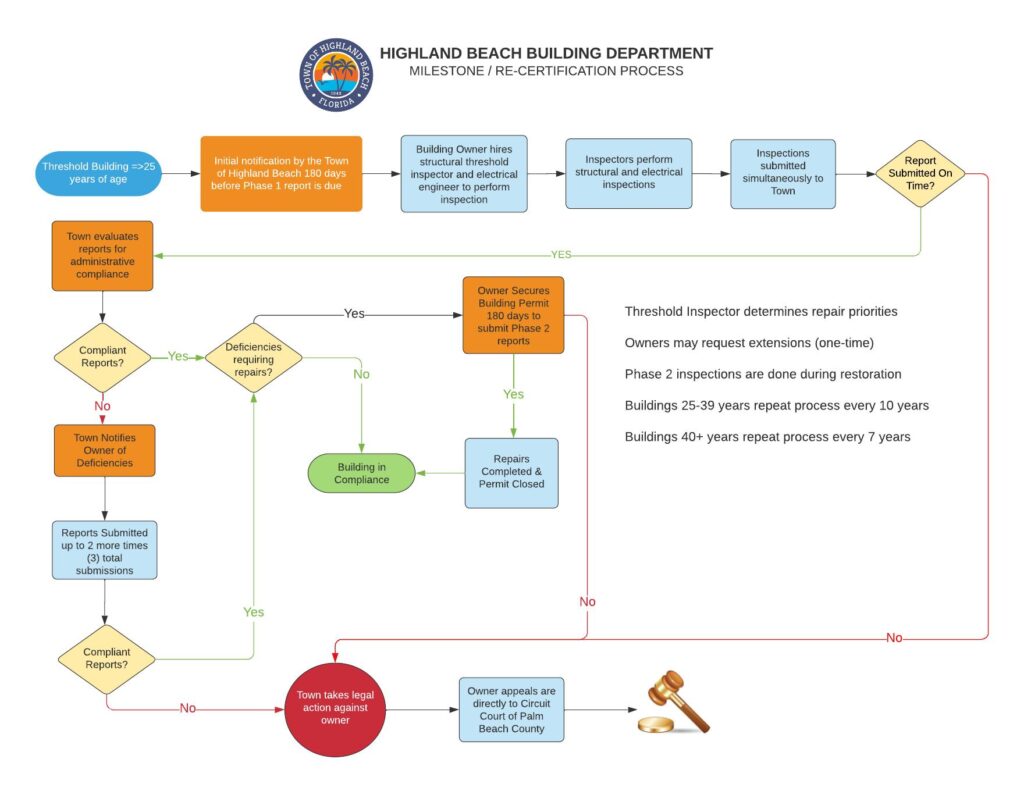
Emphasis on Special Inspector Registration
Registration of Threshold Special Inspectors:
Highland Beach now encourages special inspectors with expertise in assessing complex buildings to register with the town. This ensures that building owners have access to highly qualified professionals who are well-versed in current building codes and safety requirements.
Enhanced Reporting Requirements
Recent updates mandate more detailed reporting for structural and electrical inspections. These changes aim to improve transparency and accountability during the recertification process.
- Detailed Reporting:
Reports must include the building’s address, property control number, construction type, size, and other relevant details. This information allows for accurate documentation of the inspection findings. - Inclusion of Inspection Methods and Findings:
Inspectors are now required to include detailed descriptions of the methods used during the inspection and a comprehensive account of their findings. This ensures that property owners have a clear understanding of any issues identified during the inspection process. - Photographic Evidence Requirement:
Strongly encouraged, photographic evidence helps document the condition of key structural and electrical components. This not only adds credibility to the reports but also provides a visual record of the building’s condition at the time of inspection.
Next Steps
The recent updates to Highland Beach’s Milestone Recertification Inspection program reflect the town’s commitment to maintaining high safety standards. As a building owner or manager, staying informed about these changes is critical to avoiding penalties and ensuring that your property remains in compliance with all local regulations.
By understanding the recertification process, engaging qualified professionals, and adhering to the updated reporting requirements, you can ensure that your property is safe, compliant, and well-maintained for years to come.
Need help? Contact Florida Engineering LLC to guide you through the process. Our team of experts can help you navigate your specific obligations and prepare for your building inspections with confidence. Don’t wait—start preparing today!
This updated guide provides all the necessary information you need to stay ahead of the Highland Beach building recertification requirements. Stay proactive to ensure your building remains safe, compliant, and up to date with local regulations.
Contact Us – The Milestone Experts Near Me – Florida’s Condominium Inspections
- Phone: 941-391-5980
- Email: contact@fleng.com
- Address: 4161 Tamiami Trail, Suite 101, Port Charlotte, FL 33952
Connect With Us
Related Services
- Milestone Inspections
- Energy Calculation Services
- 25,30,40,50,60 Year Recertifications
- Pool Engineering Services
- Turnover Inspections
[This above text is for information purposes only and does not constitute engineering or legal advice. Please consult a professional engineer and licensed attorney for any specific answers to your questions about Milestone Inspections and the legal obligations milestone inspections entail.]

